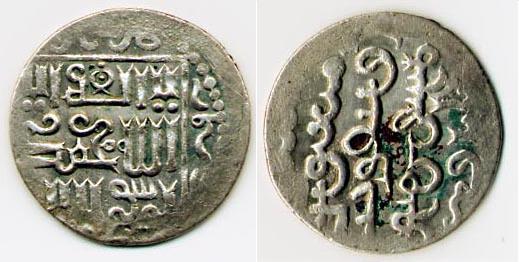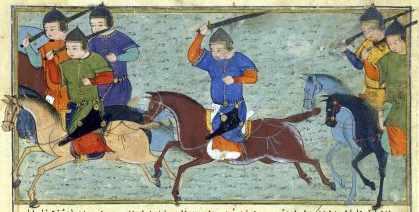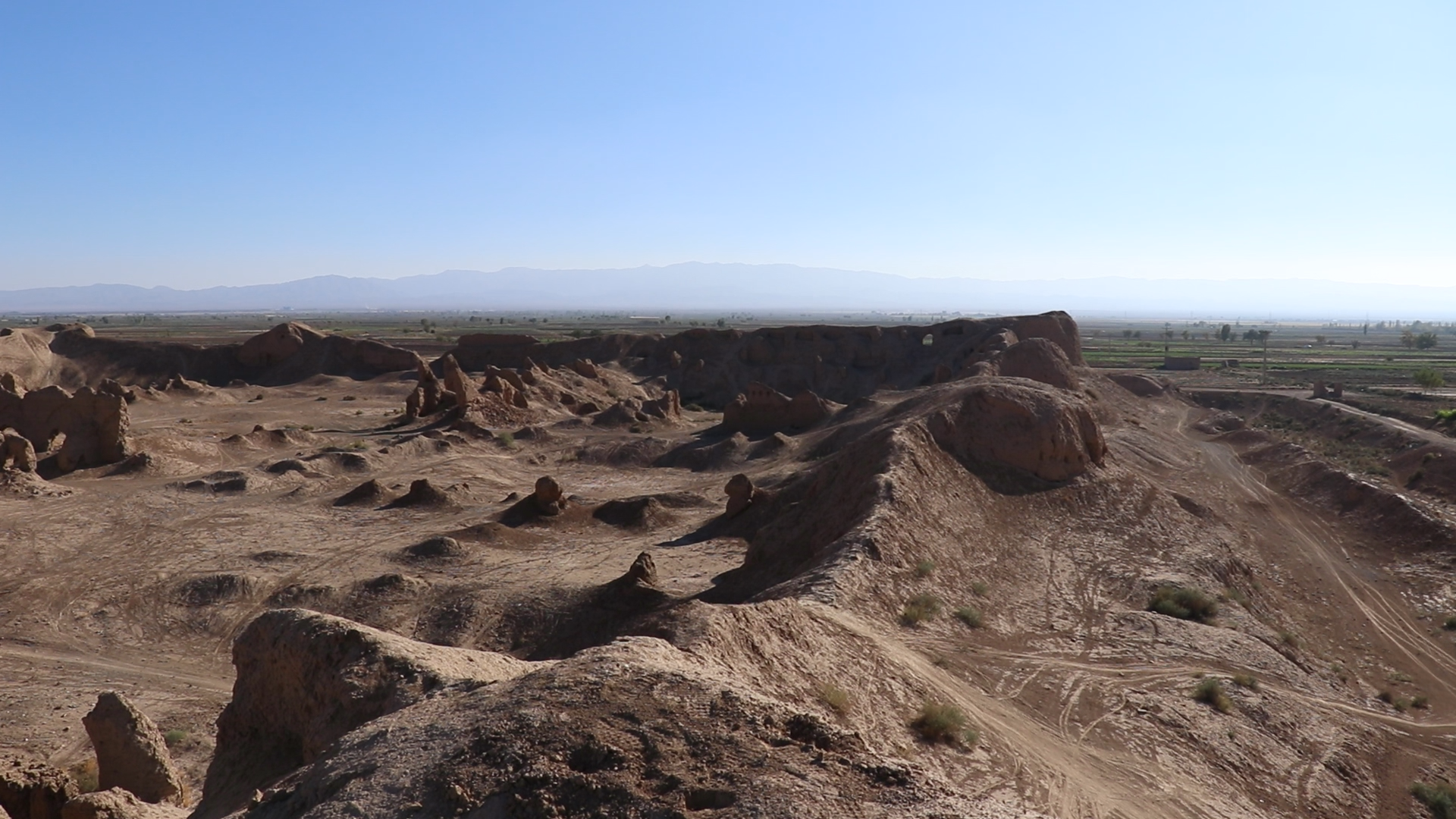|
Taghachar
Taghachar, also spelled Tajir, Ta'achar (, ; died c. 1296) was a commander in the army of the Mongol Empire. He was one of the conspirators involved in the overthrow of three Ilkhanate khans, and placed the short-lived Baidu on the throne in 1295. Background Taghachar was a member of the Suquai'ud branch of the Baarin tribe. His father was Qutu Buqa, a tümen commander operated under Hulagu and Abaqa and died in battle against Golden Horde. He also had an elder brother called Taiju, who died in infancy. His other relatives, including his grandfather Temüge Noyan who was emir and uncle Jangqun who was head of security force looking after security of roads were all important emirs of Mongol armies. When Hulegu entered Persia in 1256, Taghachar commanded a battalion of his western wing. He was mainly stationed in province of Fars. Career under Abaqa and Tekuder His main rise to prominence began after Battle on Ağsu banks against Golden Horde on 19–20 July 1265. Although Pr ... [...More Info...] [...Related Items...] OR: [Wikipedia] [Google] [Baidu] |
Baydu
Baydu (Mongolian script:; ) (died 1295) was the sixth ruler of the Mongol empire's Ilkhanate division in Iran. He was the son of Taraqai, who was in turn the fifth son of Hulagu Khan.Stevens, John. ''The history of Persia. Containing, the lives and memorable actions of its kings from the first erecting of that monarchy to this time; an exact Description of all its Dominions; a curious Account of India, China, Tartary, Kermon, Arabia, Nixabur, and the Islands of Ceylon and Timor; as also of all Cities occasionally mention'd, as Schiras, Samarkand, Bokara, &c. Manners and Customs of those People, Persian Worshippers of Fire; Plants, Beasts, Product, and Trade. With many instructive and pleasant digressions, being remarkable Stories or Passages, occasionally occurring, as Strange Burials; Burning of the Dead; Liquors of several Countries; Hunting; Fishing; Practice of Physick; famous Physicians in the East; Actions of Tamerlan, &c. To which is added, an abridgment of the lives of the ki ... [...More Info...] [...Related Items...] OR: [Wikipedia] [Google] [Baidu] |
Arghun
Arghun Khan (Mongolian Cyrillic: ''Аргун хан''; Traditional Mongolian: ; c. 1258 – 10 March 1291) was the fourth ruler of the Mongol empire's Ilkhanate, from 1284 to 1291. He was the son of Abaqa Khan, and like his father, was a devout Buddhist (although pro-Christian). He was known for sending several embassies to Europe in an unsuccessful attempt to form a Franco–Mongol alliance against the Muslims in the Holy Land. It was also Arghun who requested a new bride from his great-uncle Kublai Khan. The mission to escort the young Kököchin across Asia to Arghun was reportedly taken by Marco Polo. Arghun died before Kököchin arrived, so she instead married Arghun's son, Ghazan. Early life Arghun was born to Abaqa Khan and his Öngüd, possibly Christian concubine Qaitmish egechi in 8 March 1259 (although Rashid al-Din states it was in 1262, which is unlikely) near Baylaqan. He grew up in Khorasan under care of Sartaq Noyan (from Jalair tribe) who was his militar ... [...More Info...] [...Related Items...] OR: [Wikipedia] [Google] [Baidu] |
Mulay
Mulay, Mûlay, Bulay ( or Molay for the Franks, ) was a general under the Mongol Ilkhanate ruler Ghazan at the end of the 13th century. Mulay was part of the 1299–1300 Mongol offensive in Syria and Palestine, and remained with a small force to occupy the land after the departure of Ghazan. He also participated in the last Mongol offensive in the Levant in 1303. His name has caused confusion for some historians, because of its similarity with that of the contemporary Grand Master of the Knights Templar, Jacques de Molay. Early years According to Maitland Muller's translation of Jami' al-Tawarikh, he was a member of Küin clan of Tatar tribe. Michael Hope calls him a maternal uncle to Ghazan various times, while Rashid al-Din doesn't specify him as brother to Ghazan's mother Qultaq, but rather as a brother to certain Küräk Temür, whom Arghun took Qultaq from: In any case, he was close to Ghazan, by the virtue of his fiefs were located in Quhistan, which was located in Ghaza ... [...More Info...] [...Related Items...] OR: [Wikipedia] [Google] [Baidu] |
Tekuder
Ahmed Tekuder ( Mongolian: ''Tegülder'', meaning “perfect”; fa, تکودر) (c.1246 10 August 1284), also known as Sultan Ahmad (reigned 1282–1284), was the sultan of the Persian-based Ilkhanate, son of Hulegu and brother of Abaqa. He was eventually succeeded by his nephew Arghun Khan. Early life Tekuder was born c. 1246 in Mongolia to Hulagu and Qutui Khatun from Khongirad tribe as his seventh son. His birth date is not mentioned elsewhere but according to sources he died at age of 37, therefore his birth year must have been around 1246 or 1247. He was baptized in his childhood as a Nestorian Christian and was given name ''Nicholas''. He arrived in the Ilkhanate sometime in 1260s with his mother Qutui and brother Tekshin. Years later, he was granted governorship of Nahavand and Dinavar by Abaqa, who respected his mother Qutui. Qutui was also invested with territories with income of 100.000 gold coins near Mayyafariqin by Abaqa. Conversion to Islam The circumstances of ... [...More Info...] [...Related Items...] OR: [Wikipedia] [Google] [Baidu] |
Buqa
Buqa (or Bugha) (died January 16, 1289) was a Mongol lord and chancellor who was instrumental in sweeping Arghun to power as the fourth Il-Khan of Iran in 1284 and became his chief minister (vizier) and advisor, succeeding Shams ad-Din Juvayni whom Arghun had executed. Life Childhood Buqa was from the Jalayir tribe and an orphaned person. His father was Ugulay Qurchi who accompanied Hulagu Khan as his scout. He was given to Abaqa's court alongside his brother Aruq as an orphan kid and became his follower. Life under Abaqa and Tekuder He served Abaqa as his trusted counselor, keeper of treasury, keeper of pelts and keeper of seal; meanwhile befriending his son Arghun. After Abaqa's death in 1282, he supported Arghun for the throne in opposition to Tekuder, however, still served him as keeper of seal after his election and became his trusted commander. During Arghun's insurrection against Tekuder in 1284, ilkhan entrusted him to collect Prince Gaykhatu as hostage from Arghun. ... [...More Info...] [...Related Items...] OR: [Wikipedia] [Google] [Baidu] |
Viceroy
A viceroy () is an official who reigns over a polity in the name of and as the representative of the monarch of the territory. The term derives from the Latin prefix ''vice-'', meaning "in the place of" and the French word ''roy'', meaning "king". He has also been styled the king's lieutenant. A viceroy's territory may be called a viceroyalty, though this term is not always applied. The adjective form is ''viceregal'', less often ''viceroyal''. The term ''vicereine'' is sometimes used to indicate a female viceroy ''suo jure'', although ''viceroy'' can serve as a gender-neutral term. Vicereine is more commonly used to indicate a viceroy's wife. The term has occasionally been applied to the governors-general of the Commonwealth realms, who are ''viceregal'' representatives of the monarch. ''Viceroy'' is a form of royal appointment rather than noble rank. An individual viceroy often also held a noble title, however, such as Bernardo de Gálvez, 1st Viscount of Galveston, who was ... [...More Info...] [...Related Items...] OR: [Wikipedia] [Google] [Baidu] |
Tabriz
Tabriz ( fa, تبریز ; ) is a city in northwestern Iran, serving as the capital of East Azerbaijan Province. It is the List of largest cities of Iran, sixth-most-populous city in Iran. In the Quri Chay, Quru River valley in Iran's historic Azerbaijan (Iran), Azerbaijan region between long ridges of volcanic cones in the Sahand and Eynali mountains, Tabriz's elevation ranges between above sea level. The valley opens up into a plain that gently slopes down to the eastern shores of Lake Urmia, to the west. With cold winters and temperate summers, Tabriz is considered a summer resort. It was named World Carpet Weaving City by the World Crafts Council in October 2015 and Exemplary Tourist City of 2018 by the Organisation of Islamic Cooperation. With a population of over 1.7 million (2016), Tabriz is the largest economic hub and metropolitan area in northwest Iran. The population is bilingual, speaking Azerbaijani language, Azerbaijani and Persian. Tabriz is a major heavy industrie ... [...More Info...] [...Related Items...] OR: [Wikipedia] [Google] [Baidu] |
Kheshig
Kheshig ( Mongolian: Khishig, Keshik, Khishigten for "favored", "blessed") were the imperial guard for Mongol royalty in the Mongol Empire, particularly for rulers like Genghis Khan and his wife Börte. Their primary purpose was to act as bodyguards for the emperors and other important nobles. They were divided into two groups: the day guard (Torguud) and the night guard (Khevtuul). They were distinct from the regular army and would not go to battle with them, instead staying back on guard duty. Their supreme commander was called the ''Cherbi''. Because the Mongol Empire spanned most of Eurasia, its impacts on Mongol controlled-areas led to the creation of imperial guards like the Keshik. Kheshig was the term used for the palace guards of the Mughal emperors in India, and also for the matchlocks and sabres, which were changed weekly from Akbar the Great's armoury for the royal use. The royal guards in Persia who watched the King's person at night were also called Keshikchi. History ... [...More Info...] [...Related Items...] OR: [Wikipedia] [Google] [Baidu] |
Ata-Malik Juvayni
Atâ-Malek Juvayni (1226–1283) ( fa, عطاملک جوینی), in full, Ala al-Din Ata-ullah (), was a Persian historian and an official of the Mongol state who wrote an account of the Mongol Empire entitled '' Tarīkh-i Jahān-gushā'' (''History of the World Conqueror''). Early life Juvayni was born in Joveyn, a city in Khorasan in eastern Persia. Both his grandfather and his father, Baha al-Din, had held the post of ''sahib-divan'' or Minister of Finance for Muhammad Jalal al-Din and Ögedei Khan respectively. Baha al-Din also acted as deputy c. 1246 for his immediate superior, the emir Arghun, in which role he oversaw a large area including Kingdom of Georgia. Career Juvayni, just as his predecessors became an important state official. He visited the Mongol capital of Karakorum twice, beginning his history of the Mongols conquests on one such visit (c. 1252–53). He was with Ilkhan Hulagu in the 1256 campaign at the taking of Alamut, where he selected many 'choice ... [...More Info...] [...Related Items...] OR: [Wikipedia] [Google] [Baidu] |
Salghurids
The Salghurids ( fa, سلغُریان), also known as the Atabegs of Fars (), were a Persianate dynasty of Salur Turkmen origin that ruled Fars, first as vassals of the Seljuqs then for the Khwarazm Shahs in the 13th century. History The Salghurids were established by Sunqur in 1148, who had profited from the rebellions during the reign of Seljuq sultan Mas'ud ibn Muhammad. Later the Salghurids were able to solidify their position in southern Persia to the point of campaigning against Kurds and involving themselves in the succession of the Kirman Seljuqs, holding Seljuq sultan Malik-Shah III's son Mahmud as a possible claimant to the Seljuq throne. They briefly occupied Isfahan in 1203-4, and later occupied Bahrain taken from the Uyunid dynasty in 1235.Curtis E. Larsen, ''Life and Land Use on the Bahrain Islands: The Geoarchaeology of an Ancient Society'', (University of Chicago Press, 1984), 66. Under Sa'd I ibn Zangi, the Salghurids experienced a significant prosperity, ... [...More Info...] [...Related Items...] OR: [Wikipedia] [Google] [Baidu] |
Qara'unas
The Qara'unas or Negüderi were a Mongol people who settled in Afghanistan after moving from Turkestan and Mongolia. Foundation The word Qarauna derived from the Mongolian word ''Qara'' meaning black in Mongolian. At first they were subjects of the Great Khan and served as ''tamnas'' or ''tamachis'' in Afghanistan. The Great Khan appointed their leaders from non- Chingisid generals such as Dayir and Mungudei. In 1238, they settled near India to face the military forces of the Delhi Sultanate. In the 1250s their leader was Sali Noyan who was of Tatar origin. Möngke Khan ordered Sali Noyan and his tamna soldiers to join Hulegu's army in 1253. In 1260, Jochid Baval, the father of Nogai Khan, was executed on the orders of Hulegu Khan after gaining permission from Berke who was the khan of the Golden Horde. Soon after that, Kuli and Tutar, also Golden Horde princes, died under suspicious circumstances. Golden Horde soldiers who served Hulgeu feared for their lives and began to ... [...More Info...] [...Related Items...] OR: [Wikipedia] [Google] [Baidu] |
Atabeg
Atabeg, Atabek, or Atabey is a hereditary title of nobility of Turkic origin, indicating a governor of a nation or province who was subordinate to a monarch and charged with raising the crown prince. The first instance of the title's use was with early Seljuk Turks who bestowed it on the Persian vizier Nizam al-Mulk It was later used in the Kingdom of Georgia, first within the Armeno-Georgian family of Mkhargrdzeli as a military title and then within the house of Jaqeli as princes of Samtskhe. Title origins and meanings The word ''atabeg'' is a compound of the Turkic word ''ata'', "ancestor", or "father" and the word ''beg'' or ''bey'', "lord, leader, prince". ''Beg'' is stated in some sources as being of Iranian origin (as in the compound Baghdad from ''bag/beg'' and ''dad'', "lord" given). However, according to Gerhard Doerfer, the word ''beg'' may have possibly been of Turkic origin – the origin of the word still remains disputed to this day. The title ''Atabeg'' was co ... [...More Info...] [...Related Items...] OR: [Wikipedia] [Google] [Baidu] |




